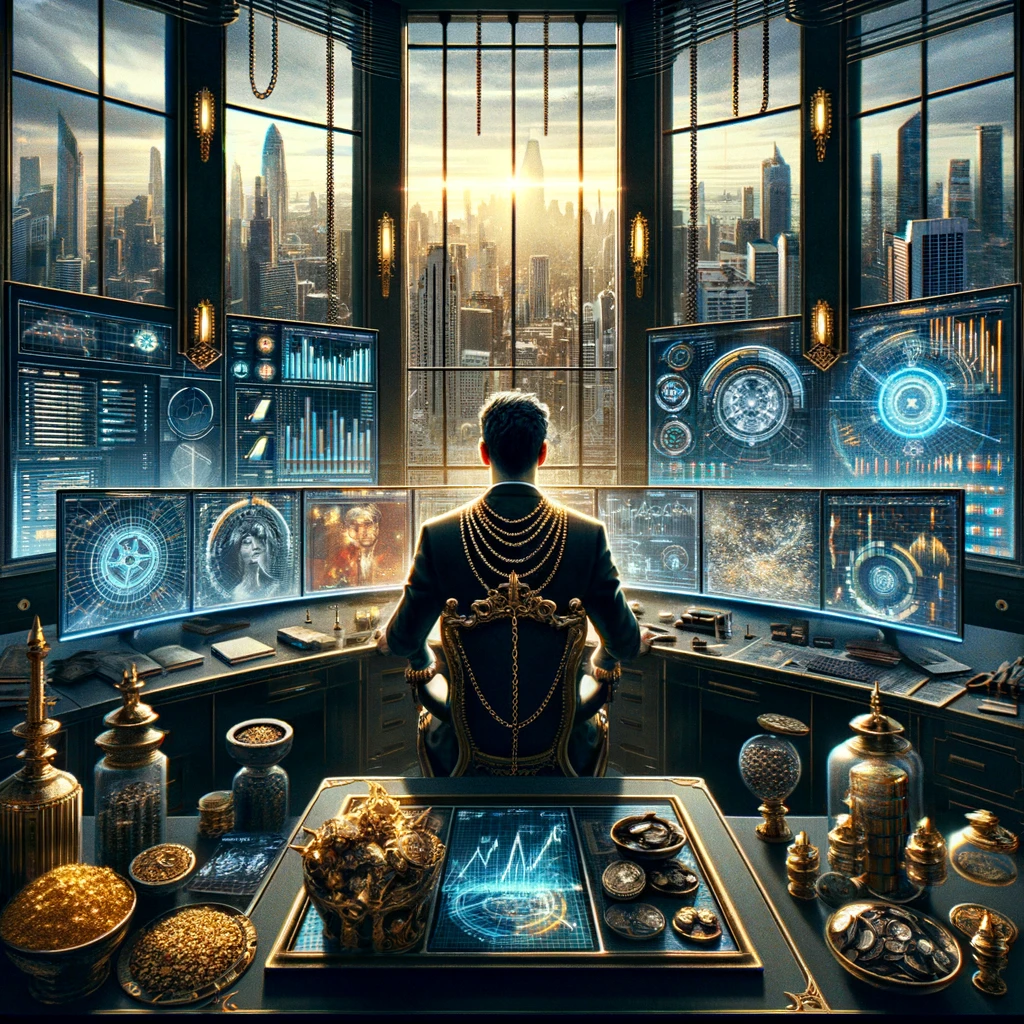Marcus, a charismatic tech mogul, stands at the pinnacle of his industry, a testament to ambition and desire in the digital age. His company, a behemoth in social media and online advertising, wields influence over millions, shaping desires, opinions, and behaviors through sophisticated algorithms and data analysis.
In his sleek, high-rise office overlooking the city, Marcus basks in his success, surrounded by the latest technological innovations and luxuries that money can buy. However, this success comes at a price. The more he achieves, the more he craves, trapped in a cycle of endless desire for more power, more influence, and more wealth.
The vast screens in his office display graphs of user engagement and revenue streams, symbols of his achievements but also chains that bind him to his relentless pursuit of growth. His staff, brilliant but overworked, mirror the addictive nature of the platforms they help create, caught in the web of constant connectivity and comparison.
This scene embodies the modern interpretation of The Devil Tarot card, highlighting the themes of materialism, addiction, and the bondage to external desires that can dominate one’s life. Marcus’s story is a cautionary tale of losing oneself to the seductions of power and the digital echo chambers that reinforce our deepest insecurities and desires.
